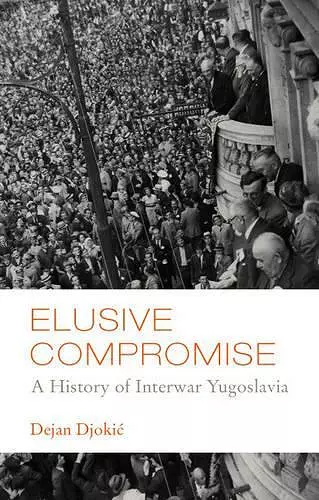Elusive Compromise
A History of Interwar Yugoslavia
Format:Hardback
Publisher:C Hurst & Co Publishers Ltd
Published:5th Oct '07
Currently unavailable, and unfortunately no date known when it will be back

Before Tito's Yugoslavia, which disintegrated violently in the 1990s, there was another Yugoslav state. This book is about the original, interwar Yugoslavia (1918-41), and is based on the author's research in Croatian, Serbian, British and American archives and on extensive study of published sources. Unlike other scholars, Dejan Djoki argues that the period can be best understood through an analysis of attempts to reach a Serb-Croat compromise. Historians have long recognised the Croats' rejection of state centralism, but Djoki shows that many Serbs had also accepted federalism by the mid-1930s. Djoki challenges the popular perception of the period as one of constant conflict between Serbs and non-Serbs and argues that the political mismanagement of the country paved the way for the radicalisation of the war years (1941-5) and the subsequent communist takeover. Although primarily a study of conflict management in a multinational state, the book provides an insight into the effects of politics on 'ordinary' people. "Elusive Compromise" places Yugoslavia in the context of a Europe-wide struggle between democracy and dictatorship, and contributes to an understanding of the dissolution of Yugoslavia and other multinational states.
'Fascinating and compelling. ... an extremely important addition to the historiographyof Yugoslavia.' -Prof. V.P. Gagnon, author, The Myth of Ethnic War:Serbia and Croatia in the 1990s'Logical as the idea of a unified South Slav state seemed in the late nineteenthcentury, since such a state failed twice in the next century, catastrophicallythe second time, it is now easy to assume that the hope was flawedfrom the beginning and that the problem is in Serbian-Croatian relations.Key scholars have posited that failure was in the DNA of the first Yugoslavia- born of the First World War, destroyed by the Second - but Djoki argues that interwar Yugoslavia was not doomed by conflicting Croatian and Serbian national ideologies. Failure came rather from the inability of politiciansto compromise over the centralization of state power. Hence, the statefailed because of political decisions taken or not taken in the flush of events, not because of primordial forces. Djoki does not ultimately prove the counterfactual that the Yugoslav idea could have been saved, but he gives it plausibility.' -Foreign Affairs
ISBN: 9781850658511
Dimensions: unknown
Weight: unknown